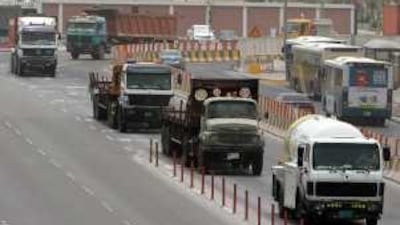Abdul Rahman al Rashed highlighted some similarities and differences between Arabs and Iranians in a piece in the London-based Asharq Al Awsat. Iranians and Arabs, though they live in the same geographical area and embrace the same religion, have had different historical experiences, he explained. "Arabs are comprised of people from different ancestries and they are distributed over two adjacent continents, while Iranians mostly live within the borders of one country and have a single language that few speak outside these borders."
It is not difficult then, maintained the writer, to understand why Iran had always looked towards the Arab world and beyond. "Iran would always like to step out of its cage. Mohammad Reza Shah Pahlavi had done just this by building a military arsenal to be the police force of the region. Similarly, after the Islamic revolution, Iranians pursued the same trend, insisting on maintaining the upper hand on regional issues."
The recent events in Iran highlighted the wide differences in attitudes between the neighbouring peoples, the writer added. The popular protests were reminiscent of those at the start of the Islamic revolution. They were "bottom up" movements that would occur no matter how well the regime suppresses them. In the history of the modern Arab world most popular protests were orchestrated from the top, which caused them to have very limited impact, Mr al Rashed added.
"The US president Barack Obama clearly expressed the US position regarding the ambiguous statements made by the US vice president Joseph Biden in an interview last week that were taken by the media to mean that he had given a green light for Israel to set its own course on Iran," wrote Hassan Shukri Fulful in the Qatari newspaper al Watan. "'Israel has a right to determine what's in its interests, and we have a right and we will determine what's in our interests,' said Mr Biden, pushing Mr Obama to address the situation on July 7th, denying that any decision to allow Israel to attack Iran's nuclear facilities had been made. At the same time, Mr Obama stressed that the US favoured solving the Iranian issue through diplomacy.
"Mr Obama has just reinforced the US position that has always rejected undertaking military operations against Iran." Conducting a military strike against Iran is out of the question because of logistic constraints as well as potential reactions by the Iranians, the writer added. "As such, by trying to create division within the US administration, those in Zionist circles would like to exert more pressure on the US," wrote Mr Fulful.
Commenting on the US security forces' withdrawal from urban areas in Iraq, Dr Saleh Abul Rahman al Mania wrote in an opinion piece for the UAE newspaper Al Ittihad that Iraq was in a transitional period. The transfer of power had stirred a feeling of insecurity, because the Iraqi army formed in the last three years still lacked proper field-training and suffered from many problems stemming from different sectarian loyalties.
It is of no surprise then, the author wrote, to see the number of terrorist attacks against civilians in northern Iraq and Baghdad increasing during this transition. "The problem that may now confront policy makers in Iraq is how to deal with these events as the government, which took power during the occupation, seems unable to adapt to the new situation. Mostly, it is unable to waive some of its political privileges and also could be afraid that a new elite will emerge to claim power."
Iraq needs help from friendly countries to find a resolution to its political impasse, the writer added. Iraq's neighbours, for example, can summon regional conferences under the umbrella of the Arab League or the Organisation of Islamic Conference where both the government and the opposition should devise a national plan for reconciliation, suggested the writer.
"Gulf states and other countries may face hard times when taxes on oil and its derivatives increase over claims of dumping," wrote Youssef al Quelt in the Saudi newspaper al Riyadh. It is possible that Gulf states would react by enforcing similar fiscal policies, "but given our needs for goods, equipment and machinery for building factories... we need dialogue and consensus on how to abide by international trade rules and regulations", added the writer. Gulf states maintain an outdated basis for diplomatic relations so many issues are left unresolved, Mr al Quelt argued. The Gulf states are facing a difficult test. "If they do not understand the nature of economic challenges ahead of them and design appropriate policies to defend their interests, they will all be weakened," the writer concluded.
* Digest compiled by Mostapha el Moulouli
melmoulouli@thenational.ae

How the Iranians differ from the Arabs
Abdul Rahman al Rashed highlighted some similarities and differences between Arabs and Iranians.
Most popular today
